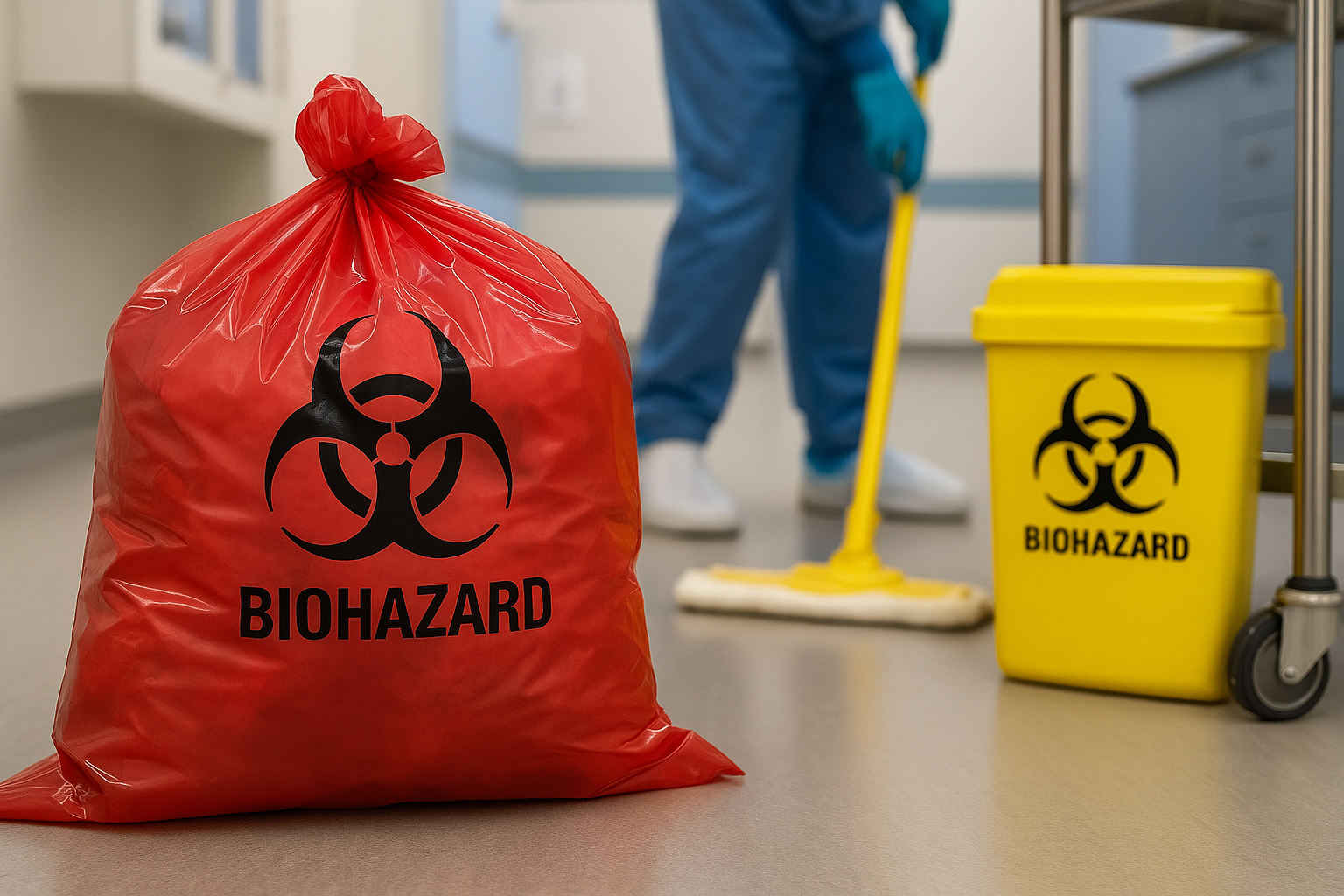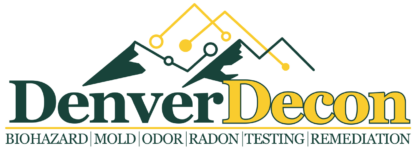Understanding The Different Categories Of Biohazard Waste And How They’re Safely Disposed
Biohazardous waste is any waste contaminated with potentially infectious agents or materials that pose a threat to human health or the environment. From medical facilities and research labs to residential homes after traumatic events, biohazardous waste appears in many settings and must be handled with precision, care, and regulatory compliance.
Common Types of Biohazardous Waste
-
Solid Biohazardous Waste
Includes contaminated gloves, dressings, gauze, bandages, or any solid material in contact with bodily fluids or infectious agents.
-
Liquid Biohazardous Waste
Blood, body fluids, and other potentially infectious liquids fall under this category and require specialized containers for safe transport and disposal.
-
Sharps Waste
Needles, syringes, scalpels, and any sharp object that could pierce the skin. These must be stored in puncture-proof containers.
-
Pathological Waste
Human tissues, organs, and body parts removed during surgery or autopsy.
-
Microbiological Waste
Waste from labs, such as cultures, stocks, and discarded live viruses or bacteria used in research.
-
Animal Waste
From veterinary clinics or research labs, this includes animal carcasses, body parts, and bedding from infected animals.
Safe Disposal Procedures For Biohazardous Waste
Proper disposal procedures ensure that hazardous materials are neutralized and do not harm the public or environment:
- Segregation at Source: Waste should be separated into clearly labeled containers according to type.
- Use of Approved Containers: Leak-proof, puncture-resistant, and marked with biohazard symbols.
- Transportation by Certified Professionals: Moving hazardous materials requires trained personnel and licensed vehicles.
- Autoclaving and Incineration: Common sterilization and destruction methods to safely neutralize infectious material.
- Documentation and Compliance: Adhering to local, state, and federal regulations is mandatory.
For a broader understanding of biohazards and the risks they pose, read our article: What Are Biohazards? Understand The Risks Around You
The Importance of Compliance in Biohazard Waste Management
Strict legal and regulatory frameworks govern the handling of biohazardous waste. Failure to comply can result in serious penalties for individuals and organizations. Agencies like OSHA (Occupational Safety and Health Administration), the EPA (Environmental Protection Agency), and local health departments set protocols to protect both the public and the environment. These rules apply to everything from container labeling and storage to transport and treatment.
This is why professional intervention is not just helpful—it’s necessary. A licensed biohazard disposal company understands how to remain compliant while maintaining safety and efficiency.
Challenges of Biohazardous Waste Disposal
Managing biohazardous waste isn’t without its challenges:
- Volume and Variety of Waste: From residential scenes to industrial waste sites, each situation can produce a range of hazardous waste types.
- Risk of Infection or Exposure: Improper handling puts people and communities at risk.
- Environmental Concerns: Incorrect disposal can result in soil and water contamination.
To understand how professional trauma cleaners handle such environments, check out: How To Select The Right Biohazard Cleanup Service?
Addressing these challenges requires trained professionals who know how to adapt to varying conditions while ensuring safety.

Why Professional Help Is Essential
Handling biohazardous waste is not just a matter of safety—it’s the law. Whether you’re facing an emergency biohazard cleanup or need ongoing bio waste disposal services, partnering with certified professionals is the safest route.
At Denver Decon, our trained technicians specialize in:
- Bio waste removal for residential and industrial sites
- Emergency biohazard cleanup and remediation
- Biohazard medical waste and sharps disposal
- Industrial biohazard cleanup for commercial facilities
- Residential hazmat cleanup with discretion and care
We ensure compliance with OSHA, EPA, and local health department regulations, offering peace of mind and a clean, hazard-free space.
The Role of Biohazard Technicians
Professional biohazard technicians are trained in every step of the cleanup process—from identifying contamination sources to final disinfection. Their expertise covers a wide range of services, including:
- Biohazard home clean up
- Residential biohazard cleanup and trauma scene remediation
- Biohazard waste pickup and packaging
- Industrial waste site management
- Hazardous waste cleaning services
Learn more about their role in another one of our blog posts: Biohazard Waste And Its Effect On Environment
Biohazard Waste Services for Every Setting
Whether you're dealing with a medical clinic, dental office, crime scene, or hoarding situation, professional biohazard waste services are tailored to meet your specific needs. Common service types include:
- Biomedical waste services
- Biohazard waste disposal services
- Hazard cleaning service and site restoration
- Waste cleaning services with environmentally responsible methods
At Denver Decon, we bring a combination of compassion, precision, and professionalism to every site. We understand that many biohazard events are tied to emotional and traumatic experiences, which is why we approach each job with care and confidentiality.
Call Denver Decon For Safe And Effective Biohazard Cleanup
Don’t take chances with hazardous waste—trust Denver Decon to provide safe, reliable, and compliant biohazard cleanup services across Colorado. Our licensed technicians are equipped to handle everything from crime scene cleanups to residential disinfection and hazardous waste removal. Let us help you restore your space to a clean, safe condition.
Call us today or visit our website to learn more about our services.


